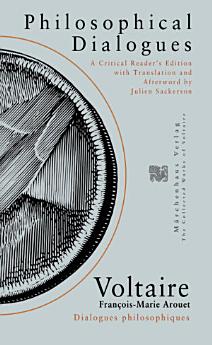關於本電子書
This modern Critical Reader’s Edition includes an illuminating afterword tracing Voltaire’s intellectual relationships with Enlightenment thinkers and philosophers (including Locke and Newton), containing unique research into his influences and economic attachments, a comprehensive timeline of his life and works, a glossary of Enlightenment terminology, and a detailed index of all of Voltaire’s writings. This unique professional translation renders Voltaire’s sharp, satirical prose into modern language to preserve the original clarity and movement of the text. Combined with the scholarly amplifying material, this edition is a groundbreaking exploration of Voltaire’s classic works and his enduring artistic and philosophical influence.
Written in the late 1720s, the Philosophical Dialogues were composed during Voltaire’s early mature years, a time when he was beginning to apply the methods of the Enlightenment to literature. The book was printed in 1728 (likely in Amsterdam or another center of free printing, since censorship in Paris was strict) and it predates his more famous works of the 1730s. At the time, the dialogue form allowed Voltaire to discuss controversial issues indirectly; he could raise subversive ideas under the guise of historical debate. Although Dialogues philosophiques never achieved the notoriety of his later satirical pieces, it nonetheless attracted some attention among readers curious about these provocative conversations. The publication was modest and did not immediately spark a scandal, but it signals Voltaire’s shift from pure poetry toward a more argumentative style. In terms of literary context, it follows the tradition of Socratic and Renaissance dialogues, yet it applies that form to the problems of Voltaire’s day – exemplifying the broader trend in 18th-century France of reviving classical forms to address modern Enlightenment themes.











